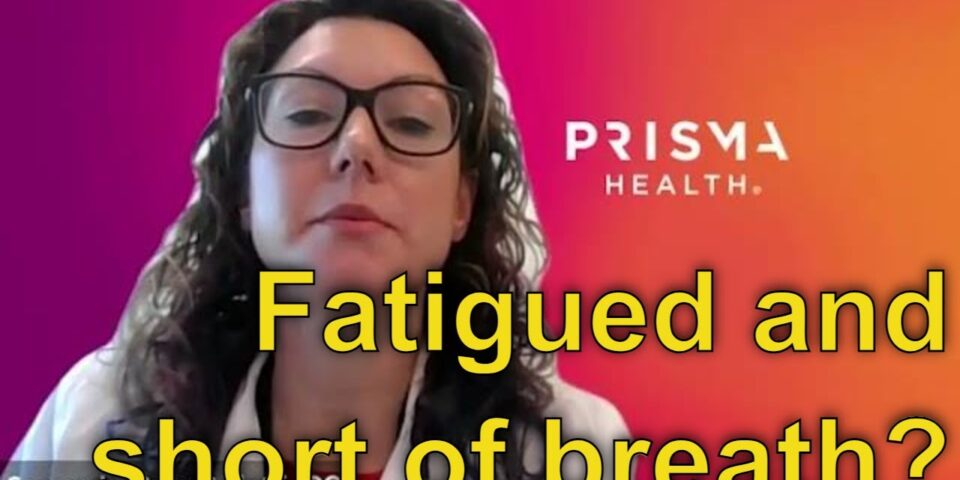What you need to know about heart failure
In this important and informative video, cardiologist Cassandra Buto-Colletti, DO, discussed what you need to know about heart failure.
If your heart were an engine and your body a car, heart failure is a sign that the engine can no longer keep up with the requirements of the car. As a result, people with heart failure begin to develop symptoms such as:
- Shortness of breath
- Fatigue
- Loss of tolerance for regular exercise and activities
- Edema (or swelling)
- Loss of appetite and early satiety (feeling full easily)
- Nausea
- Insomnia
- And more
Who is most at risk for heart failure? Does it only affect patients over 65?
“Although the majority of patients are over 65, it can affect patients of all ages,” said Dr. Buto-Colleti. “I see patients in their twenties, thirties and forties in my clinic and in the hospital who have been diagnosed with heart failure.”
How can you lower your risk of heart failure?
Dr. Buto-Colletti emphasized that the first step to preventing heart failure is making sure you have regular appointments with your physician, especially if you have a family history of heart disease or heart failure. However, a lack of family history doesn’t mean you’re not at risk.
Heart failure symptoms can feel vague and hard to define, so speaking with a physician can help get the ball rolling on the tests needed to diagnose it.
Preventing heart failure also means modifying your current lifestyle if it’s unhealthy. If you currently smoke or otherwise utilize tobacco products, it’s important to quit. People with high blood pressure or diabetes need to make sure those conditions are being controlled either by medications or other treatments. Maintaining a healthy weight with regular exercise can also help.
How is heart failure diagnosed?
Usually, heart failure is suspected when a specific constellation of symptoms comes up during an appointment with your healthcare provider. At that point, you’ll be interviewed on these symptoms and your overall health, then examined.
Tests used to diagnose heart failure include an EKG, echocardiogram, blood tests and may include chest X-rays as well.
How is heart failure treated?
“Heart failure is treated with a multidisciplinary approach,” said Dr. Buto-Colletti. “You’ll work with multiple providers and may be prescribed medications or utilize different devices in your treatment, including heart pumps, implantable devices or even a heart transplant.”
Can heart failure be cured?
Heart failure is a chronic disease and while symptoms can be managed, the patient will need to be treated for the disease indefinitely.
How is a heart failure specialist different than a general cardiologist?
Heart failure specialists receive additional training after completing general medicine and cardiology. This specialized training focuses on detailed medication titrations, medication guidelines to improve quality and length of life, implantable devices like defibrillators or heart pumps and heart transplants.
How can a heart failure specialist help?
“In cardiology, we say get with the guidelines,” said Dr. Buto-Colletti. “The guidelines help us to make sure that we get patients on the medications in a quick and orderly fashion. Some places have titration clinics, counseling on diagnosis and treatment plan, device therapies and monitored treatment and in persistent cases implantable devices or a transplant.”
How can you best manage heart failure symptoms?
Heart failure symptoms are really based in the heart’s growing struggle to successfully pump fluid around the body. There are some steps people living with heart failure can take in their everyday lives to help manage or lessen the severity of their symptoms:
- Keep liquid intake to 2 liters per day, or about 8 glasses of any liquid you might consume
- Maintain a low-or-no sodium diet
- Quit smoking
- The Mediterranean diet is recommended for heart health
- Be sure to speak honestly with your treatment team about any changes to your lifestyle
- Be sure to stick to your prescribed medication regimen
- Enlist support from family and friends to help you stay on track
What are some advanced therapies for heart failure?
“When you reach a certain stage of heart failure, you may receive a defibrillator implanted in your chest, which can help save your life if your heart fails,” said Dr. Buto-Colletti. “LVADs can also help end-stage heart failure patients to lengthen and improve their life. Heart transplant may also be considered at this stage.”
What is palliative care for heart failure like?
“While many people confuse palliative care with hospice care or think they refer to the same thing, palliative care is very different from hospice and is really about addressing symptoms,” said Dr. Buto-Colletti. “Hospice is provided at the end of life, where prognosis is about six months. Palliative care can be provided throughout at any stage of heart failure.”
Find a cardiologist you trust
We make it easier to get the care your heart needs, with cardiologists located near you.
Learn More
